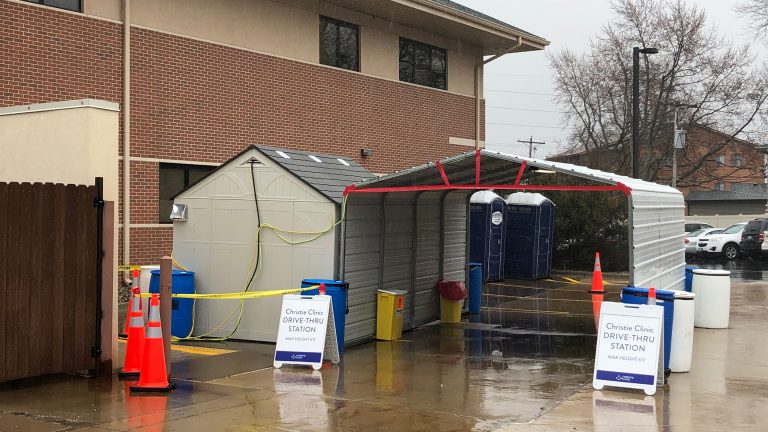Criteria for COVID-19 testing in Champaign County have expanded to include anyone experiencing symptoms consistent with the disease.
Awais Vaid, epidemiologist at the Champaign-Urbana Public Health District, says previously, the county had limited testing to people with symptoms who met other criteria set by the state’s department of public health and the U.S. Centers for Disease Countrol and Prevention.
Now any person who has any COVID-19 symptoms, even if they’re not severe, can qualify.
“That could be fever, cough, shortness of breath, loss of taste or smell, unusual fatigue,” Vaid says.
Anyone experiencing symptoms should contact their health care provider, says Vaid.
Those who lack a health care provider can call CU Public Health’s COVID-19 hotline number, (217) 239-7877, to get referred for testing at one of the testing locations in Champaign County and receive results back within 24 hours.
As of Thursday, 2,208 COVID-19 tests have been conducted in Champaign County, 100 of which have been positive.
Seventy-nine people have recovered, five have died and six people are currently hospitalized.
Vaid says the loosened testing criteria are thanks to an increase in COVID-19 testing capacity in Champaign County due to on-site testing at Carle, which was developed in partnership with the University of Illinois and began mid-March.
Prior to then, COVID-19 samples from Champaign County were sent to labs run by the Illinois Department of Public Health in Chicago or Springfield, Vais says.
All COVID-19 tests are now analyzed locally.
The change in testing criteria took effect earlier this week, says Julie Pryde, administrator for CU Public Health.
Pryde expects to see an increase in the number of COVID-19 tests in the county.
CU Public Health continues to conduct contact tracing—a process that involves launching a case investigation with each new confirmed COVID-19 case, says Pryde.
People who test positive for COVID-19 are contacted and asked to provide information about who they’ve been in contact with beginning 48 hours prior to the onset of symptoms through their infectious period.
Close contact is defined as within six feet distance, for a certain amount of time. Those individuals are then contacted by CU Public Health staff and instructed to quarantine and monitor and report symptoms on a twice daily basis.
CU Public Health has ramped up the number of people involved in conducting case investigations and contact tracing.
As of Thursday, Pryde say four people at CU Public Health are serving as case investigators, more than ten others are working on contact tracing, and the District, which has roughly 120 staff members, has the ability to train additional people to get involved with contact tracing if needed.
“We appear to have enough tracers to handle a county of this size,” Pryde says.
Social distancing measures are working to keep COVID-19 cases from spiking, Pryde says, which has prevented local hospitals from getting overwhelmed.
The Illinois Department of Public Health has been advising people to stay at home as much as possible, practice social distancing when leaving the home for essential operations, and to wear cloth masks in situations where they cannot maintain a distance of six feet from others, including while grocery shopping, picking up food and going to doctors appointments.
Wearing cloth masks while going into public places will become a requirement in Illinois starting May 1.
If someone is not able to sew a mask for themselves, Pryde recommends purchasing a cloth mask online or following CDC guidance on no-sew methods for creating a cloth mask out of basic materials.
Pryde and Vaid made their comments at an online news briefing open to members of the media.
The weekly meetings started on April 16 and are focused on topics related to Champaign County’s response to COVID-19.
If you have a question you would like to ask local officials regarding COVID-19, submit it here.
Follow Christine on Twitter: @CTHerman

